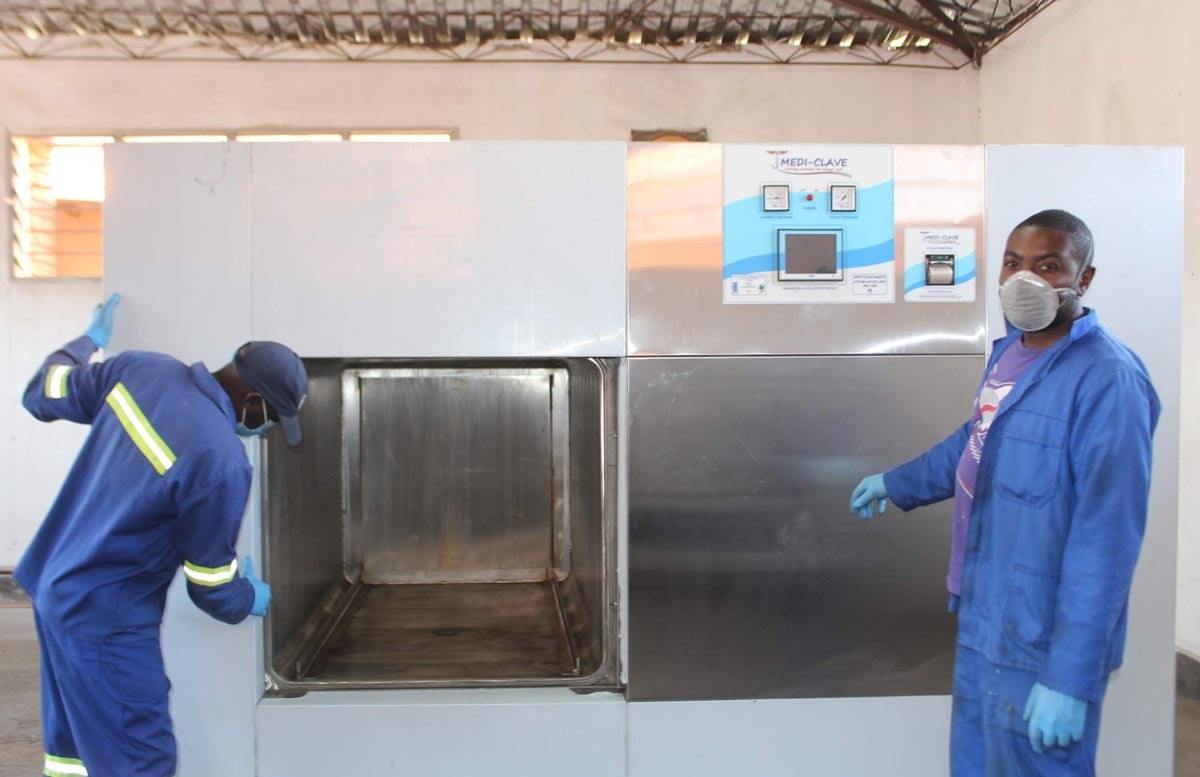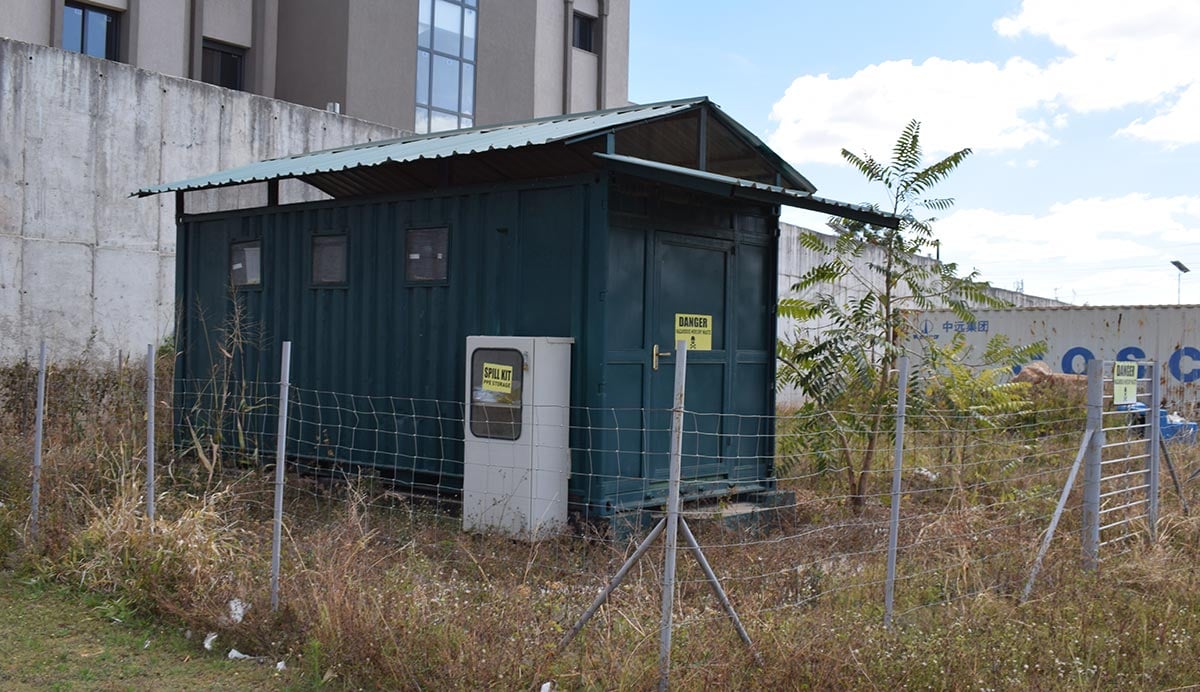Isaiah Nkhata, 35, had been working as an incinerator operator at a Zambian hospital for over a year, but had no idea about the toxicity of mercury-containing medical devices and the severe health risks they posed to him and his fellow workers.
One morning, Nkhata started choking and coughing up blood. It felt like his airways were collapsing. But he never thought this was caused by the amount of toxic ash and smoke produced from the burning chemicals he had been inhaling. He was treated by his doctor for respiratory insufficiency.
For incinerator operators like Nkhata, a father of two children, there were not many options. He needed to keep working to put food on the table and pay for his children’s education.

Isaiah Nkhata (right) shows how to manage an autoclave.
Zambia. 2021 © UNDP / Moses Zangar
“The incinerator produced so much ash and smoke,” he said. “I was covered in smoke and breathing in smoke all day. Besides, I also had to regularly deal with cuts and needle-stick injuries.”
In 2019, Nkhata became an autoclave operator. He is one of the 20 former incinerator operators trained under a five-year UNDP project to address the country’s challenges in dealing with medical waste. He learned how to operate autoclaves, an environmentally friendly medical waste treatment technology. These devices typically use pressurized steam to sterilize, disinfect or neutralise infectious medical waste. Implemented by Zambia’s Ministry of Health, the project was co-funded by the Global Environment Facility (GEF) and UNDP in partnership with the WHO and Health Care Without Harm.

I feel relieved since I became an autoclave operator. I no longer have to inhale the toxic smoke.
“Health care facilities are one of the main sources of mercury release into the atmosphere due to emissions produced by the incineration of medical waste. As part of its environmental obligations, the Zambian government is taking steps to reduce and eliminate the use of mercury-containing devices,”
says Florence Mwale, a senior Ministry of Health environmental health specialist.
As part of this initiative, Mwale says that the government has chosen available non-mercury alternatives and plans for stronger coordination between government agencies to improve mercury trade monitoring and boost education for businesses and communities about the dangers of mercury.
Considering that mercury is a hazardous and toxic material, she said the government believes it is necessary to regulate its use in order to avoid any negative impact on citizens’ health and the environment.
“Waste from broken mercury-based medical devices, such as traditional types of thermometers or blood pressure instruments often ends up in unregulated landfills and incinerators which causes a risk to human health and the environment. UNDP is partnering with the Zambian Government as part of a larger global effort to address the toxic impact that mercury pollution causes to the environment and the health of individuals. The continued spread and use of mercury undermines efforts to improve health conditions in communities,” says Lionel Laurens, Zambia’s UNDP Resident Representative.

Completed modified metal container and used for temporary storage of Mercury Containing Devices.
© Moses Zangar Jr (18)
Thanks to GEF funding, Zambia’s health authorities have begun recovering mercury-containing devices, such as thermometers and blood pressure machines from seven model health facilities.
This will ensure that the recovered toxic metals are not returned into the supply chain. The overall objective is to implement best environmental practices and introduce mercuryfree medical devices which will reduce harmful waste produced by the health care sector.
According to government figures, Zambia’s 1,882 health care facilities generate up to 30 tons of infectious health care waste every day. This figure is likely to increase following the completion of 650 health care centres currently under construction.
With Zambia now focusing on honouring its commitments to the Minamata Convention by reducing the use of mercury-containing medical devices and products, national health care institutions can significantly reduce the potential of exposing workers like Isaiah Nkhata, hospital patients and the environment to the effects of mercury.
30 tons of infectious medical waste are generated each day
in 1,882 Zambian health care facilities. This figure is expected to increase with the creation of 650 new health care centres.
20 former incinerator operators trained
to operate environmentally friendly autoclaves that treat medical waste.






